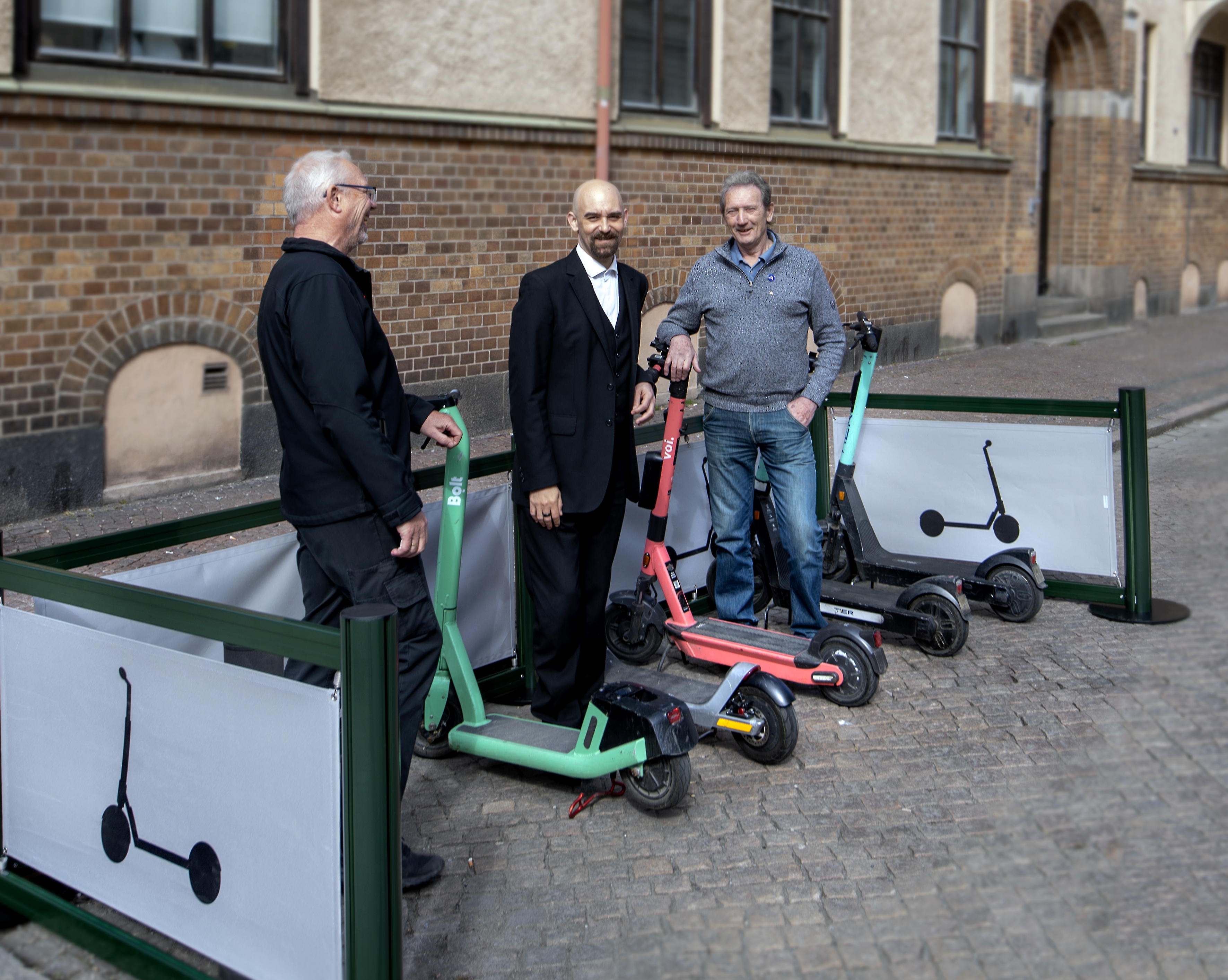Cities
A Swedish city’s practical approach to parking, an example for the whole country and wider Europe.
May 20, 2022
By By Dan Nerén, Senior Public Policy Manager - Nordics

Someone once quipped that when the ancient sage King Solomon observed there was a time and a place for everything, he had not encountered the problem of parking – especially on an e-scooter in some European cities.
A joke perhaps, but it’s funny because there’s a grain of truth in it – in fact a whole sand dune of truth – when it comes to making our cities more sustainable by adopting environmentally-friendly alternatives to cars. Good access to parking spaces for shared e-scooters and e-bikes is a prerequisite for creating order, security and space. And even though shared e-scooters are an increasingly sought-after means of transport throughout Europe, parking remains one of the biggest challenges cities and operators of e-scooters face.
Striking the right balance
One of the hardest things to get right is making safe and legal parking easy so riders don’t find it too difficult and inconvenient to do the right thing.
This is where the City of Borås in the middle of Sweden has become something of a role model. The city has invested to create a combination of fixed mandatory parking spaces in high-density areas and a free-floating model in the outer city where ridership is less dense.
Practically speaking, Borås has freed up more than 48 parking spaces designated specifically for e-scooters. They’ve ensured there is no more than 75 meters between each spot in the inner city – and they’ve adopted a less restricted parking approach in the outer city, where the number of e-scooters is significantly lower and the parking challenge considerably less.
This makes a lot of sense as data shows that providing parking spaces that can be reached within a minute's walk of the rider’s destination enables a good user experience while promoting accessibility in the city. It also fits with TIER’s vision of creating urban environments in which e-scooters and e-bikes become a natural and sustainable way of moving about in the city, and as a complement to public transport.
For its part, Borås officials welcome the input, insight and cooperation from all actors operating in the city, hence, TIER, Bird, Bolt and Voi, in the joint effort to improve the traffic situation in the city.
High density dedicated parking infrastructure is vital but with technology advancement we can even further improve parking compliance. TIER recently acquired US-based technology player Fantasmo to further invest in an e-scooter parking system that is ten times more accurate than GPS that is currently used.
Fantasmo has built a Camera Positioning System (CPS) that can validate e-scooter parking within 20cm or less. The new technology will stop riders from parking in no-go areas, protecting vulnerable road users including the visually impaired. It will also help address challenges such as pavement riding and tandem riding. Fantasmo’s CPS was first rolled out in Paris and later in other locations, including London, York, Dusseldorf, Leipzig, Utrecht and more cities soon to follow.
Tom Andersson, a municipal councilor with responsibility for traffic issues, said:
”This is a fairly new type of transport that has had ramping up problems and I think that the dedicated parking spaces in the center are a good step to make e-scooters an increasingly well-functioning part of the transport system.”

Lessons learned
This practical and mutually beneficial approach comes at a time when the Swedish government is preparing a proposal for a comprehensive national parking ban for electric scooters on footpaths and cycle paths which we believe would make it much more difficult to develop climate-smart transport in Swedish cities. There is a significant risk that the bill will only decrease the use of shared micro-mobility in Sweden, while increasing congestion at existing bicycle racks.
“That’s why we applaud the parking initiative in Borås. It just makes sense. And it’s in line with the expanded and tailored infrastructure solutions that are being adopted in smart cities like Paris, York, Lyon to name only a few who are leading the charge across Europe to encourage more sustainable transport”, says August Svedenstedt, Country Manager in Sweden & Denmark at TIER Mobility.